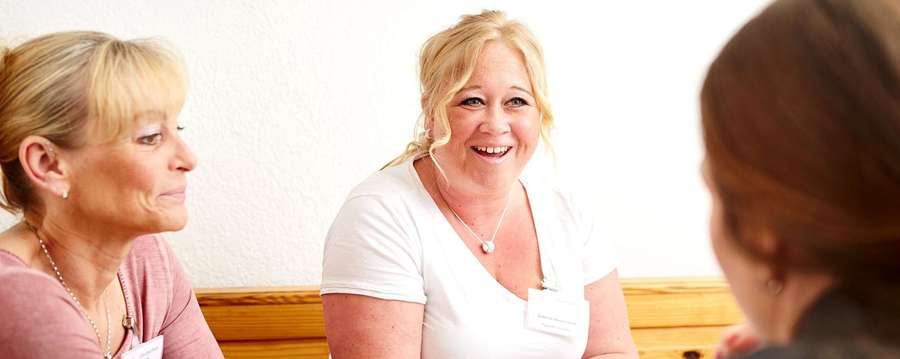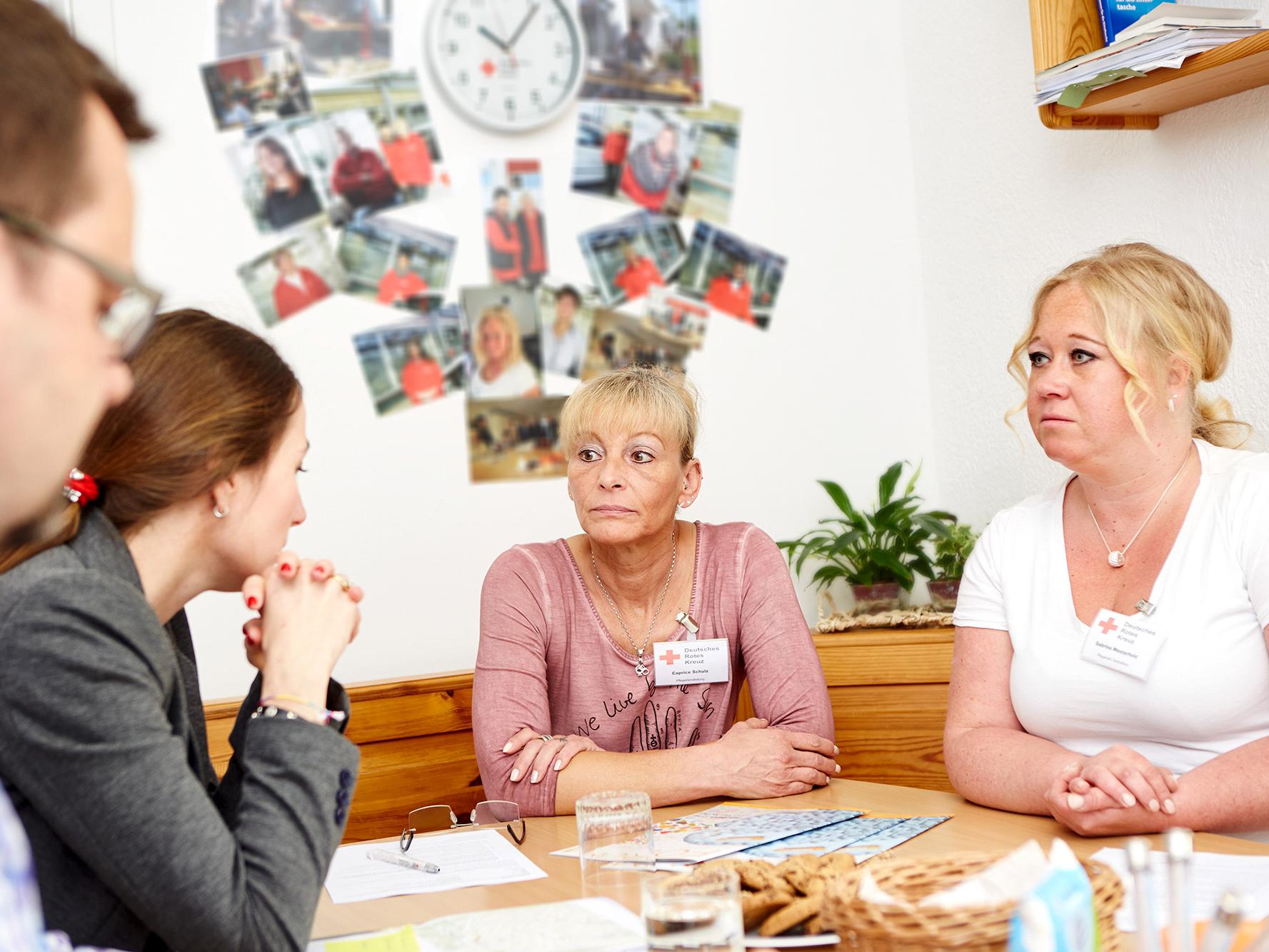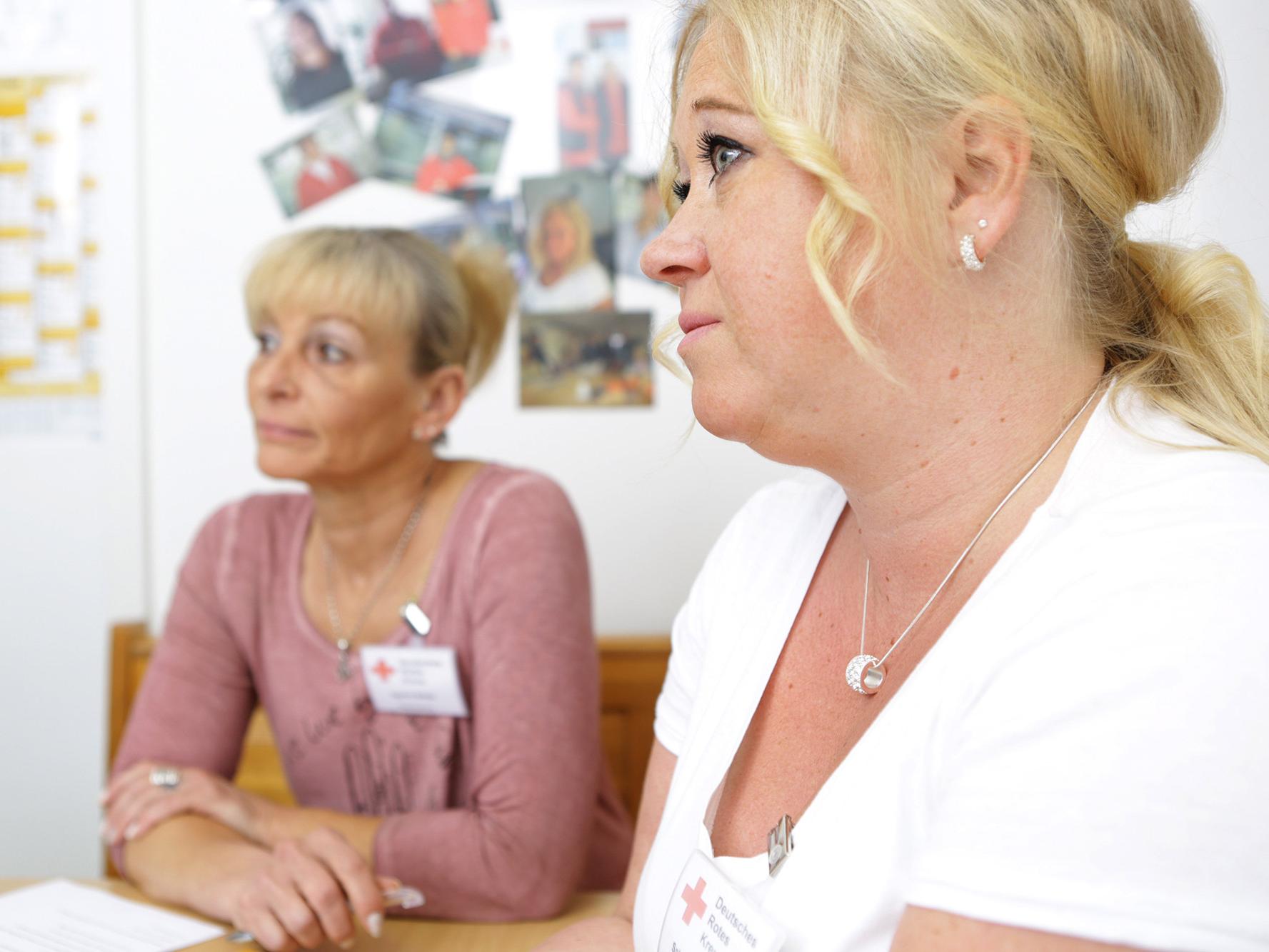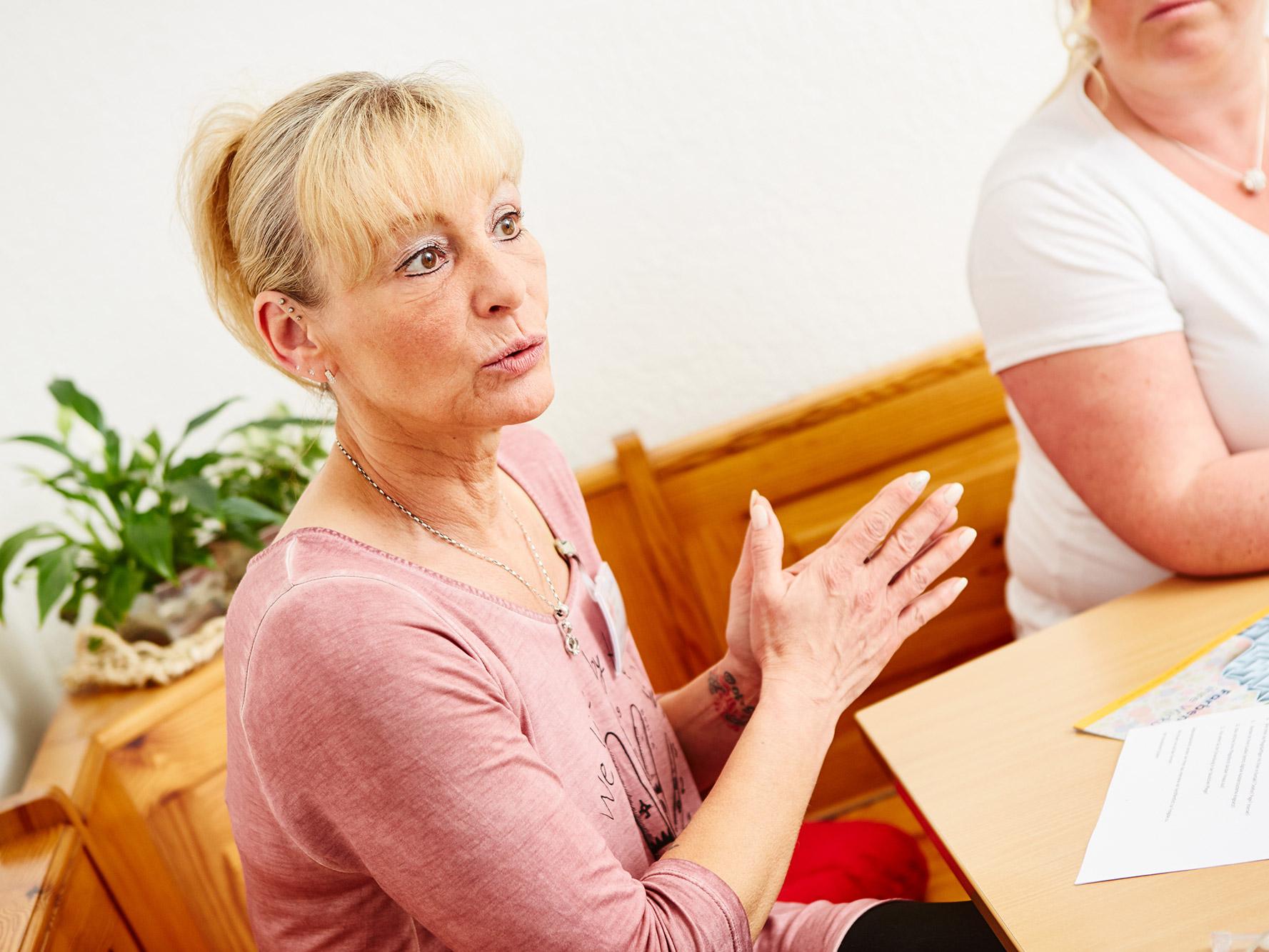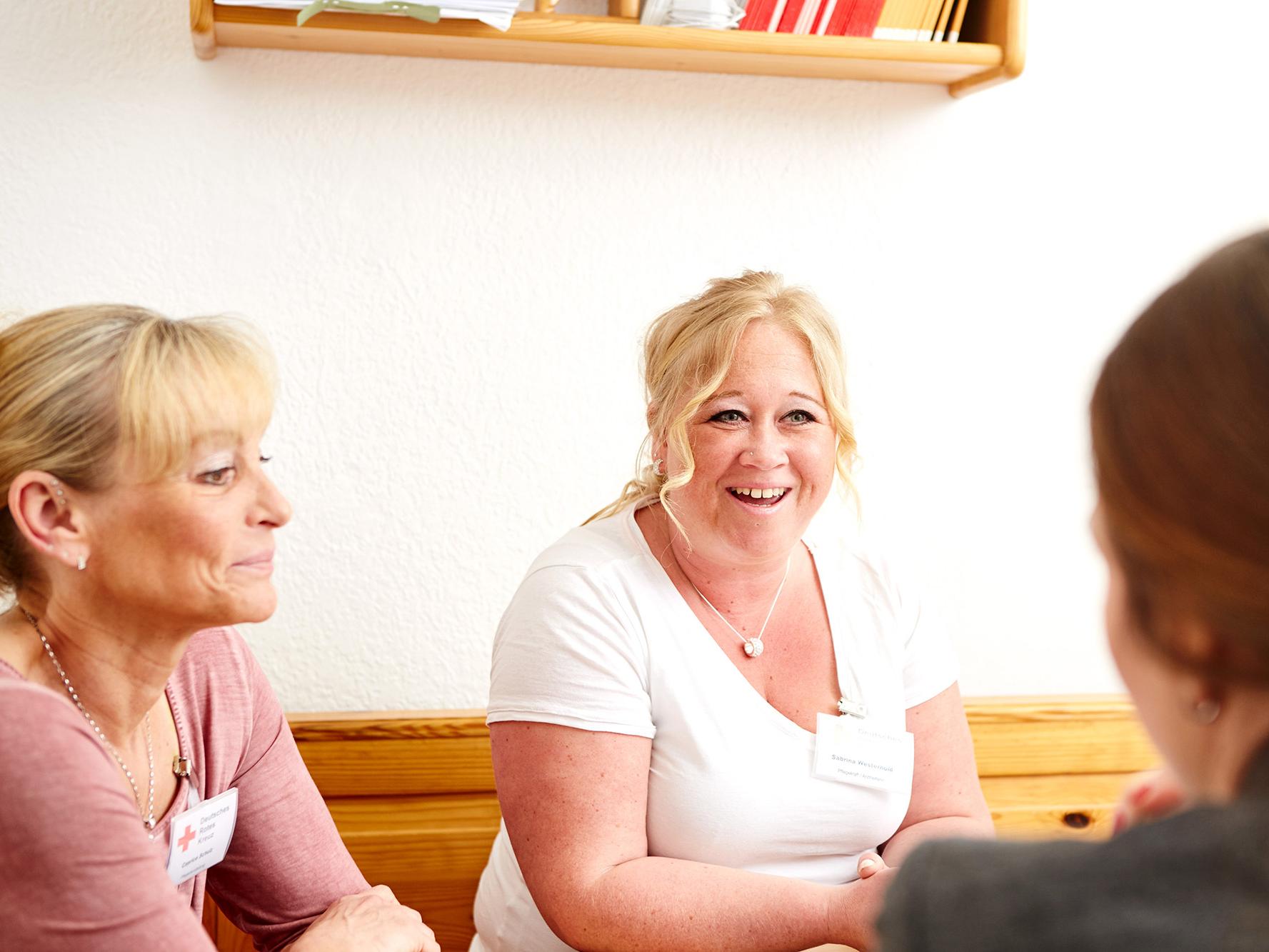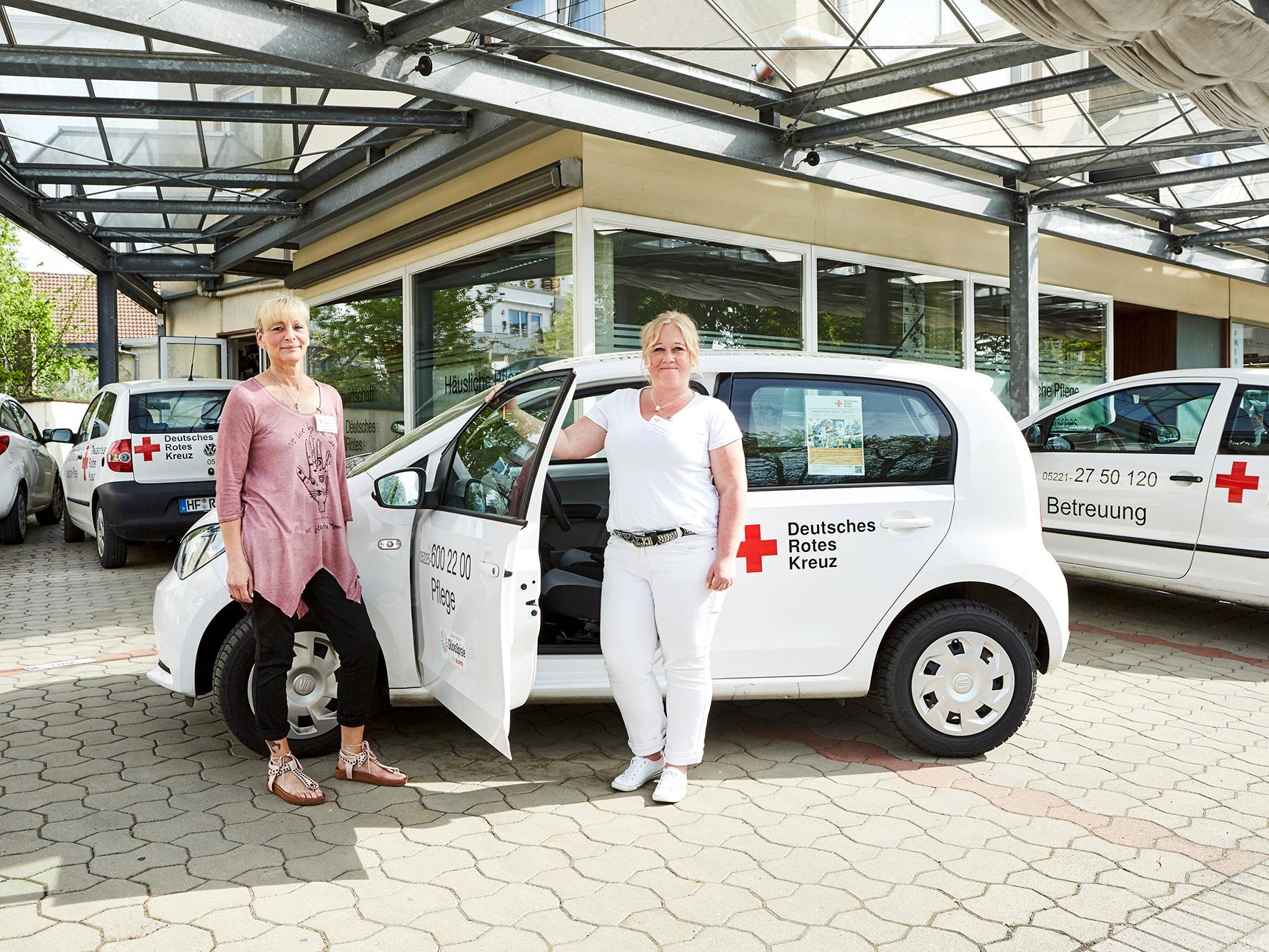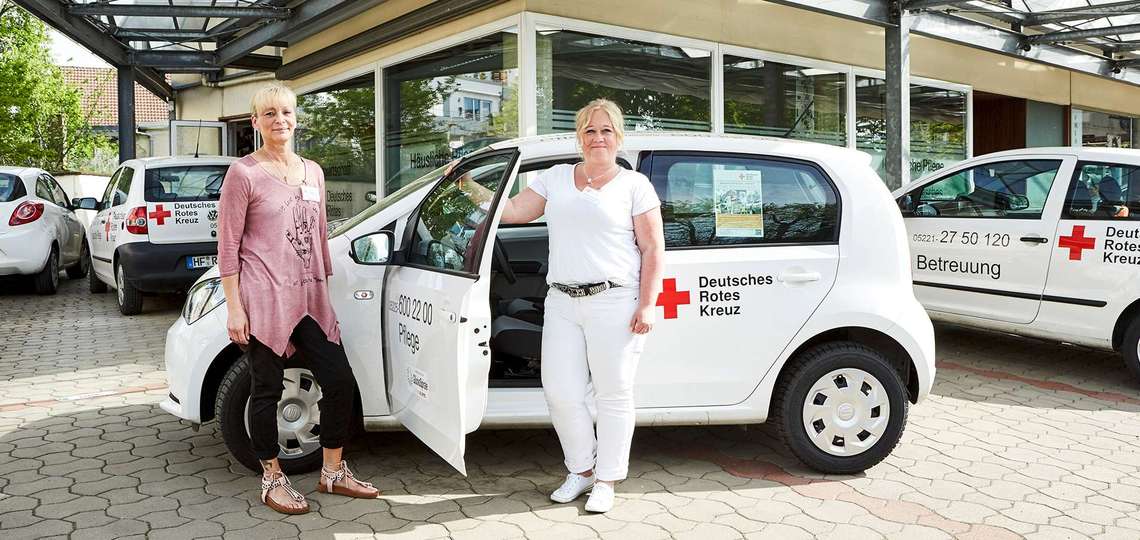
"The best part is the gratitude"
The mobile care service of the Red Cross gives us an insight into their work
The cars driven by people from mobile care services can be seen every morning as they travel from house to house. These visits are a high point of the day for many people. How does mobile care work and how do the staff feel? We talked about this to care service manager Caprice Schulz and carer Sabrina Westerhold from the German Red Cross in Herford.
Ms Schulz, Ms Westerhold, please introduce yourself and your care service.
Caprice Schulz: We are the Home Care (Häusliche Pflege) Herford and belong to the Red Cross Social Services (DRK Soziale Dienste OWL gGmbH) in Bielefeld for the East Westphalia region. Here, we organise the care service as well as 2 residential care groups, one in Herford and one in Spenge. I have worked for the Red Cross for 5 years now, and in care service management since 2013. We have about 40 people working here in Herford.
How many people do you look after in the residential care groups and at home?
CS: Currently, 60 people.
40 members of staff to 60 clients – that sounds good.
CS: Yes, it is, and we are still in a good position. In Herford, we work under conditions that allow people to enjoy working in mobile care.
Are you familiar with in-patient care, too, from your own experience?
Sabrina Westerhold: Yes, I used to work in in-patient care, but then changed over to mobile care and have been working here since July 2015. It’s good to work here, it’s a friendly atmosphere and it’s enjoyable. Of course, it can also be stressful.
What does a typical day in mobile care look like?
SW: On the early shift, the day starts between 6 and 6:30 a.m. I collect the keys for certain clients here at the care service office and then pack the car with the medicines. Then I drive to the addresses on my list. On average, that’s about 12 people, if you count the early shift and the midday shift together. On my shift, I have 5 clients who I look after completely in bed in the morning, wash them, help them out of bed, if necessary, get breakfast and give them their medicine.
CS: Besides this intensive care in the morning, there are treatment procedures for certain diseases, however, that take much less time. We work here in patient-centred care, which means that the tours are fixed so that clients and carers do not constantly change. If clients have particular wishes, however, such as someone to accompany them to the doctor’s, we also work flexibly and change appointments.
How do people in need of care live at home?
SW: Some live with their spouse, and sometimes we also care for both people. Some people have their children living in the same house with them or the neighbours look in on them. Some people also live on their own. The average age is about the mid seventies. Overall, we look after more women than men.
Who do clients ask for more often – for male carers or female carers?
SW: The men are pleased to have female carers. It happens only very occasionally that they refuse to have a female carer. It’s more common the other way round: Some women do not like being cared for by men.
Are there cultural reservations, such as from clients of different religious communities, in mobile care?
CS: We haven’t had that so far; there are only enquiries due to language barriers.
Do you have a particular time slot for each client?
SW: Our times are clearly laid down but a lot depends on the patients themselves. Sometimes, we have to fulfil more wishes than usual. We take the time for this, of course, and don’t watch the clock. There is always a certain amount of extra time, so that everything works out well.
Are there ever conflicts with clients?
SW: Oh yes, there are. But it’s a matter of remaining calm – and usually you know that it’s due to their particular medical condition. If you talk to the person sensibly, it’s usually over quickly and you’re “the best person in the world” again.
We are interested, of course, to know how important a good care bed is to your daily work.
SW: Very important indeed! Without height-adjustable beds, we would do our work for maybe a few weeks or months and then our backs would be done in.
Do some clients still use their own beds?
SW: That still happens sometimes, because people are fond of their familiar double bed, for instance. We usually recommend a change of bed in that case, and this is usually successful.
CS: We advise a lot about the right choice of care bed. Sometimes, people are very small and it is not possible to lower the big care bed fully ...
... but it is certainly possible to do so if you choose a low-height bed!
CS: Yes, but then it’s a matter of whether the medical insurance will pay the cost of this. In cases like this, height-adjustable bed inserts that can be fitted in an existing bed are wonderful. The client feels at home in it and the care work is assured.
What are the best moments during your work?
SW: The gratitude – often our patients are incredibly grateful even for small things that we normally take for granted. That makes us feel good.
Do you have a lot to do with lonely people?
CS: That does happen, and unfortunately, the financial side of things often plays a big part in these cases. We can do everything, such as looking in 5 times a day to see that everything is alright, keep them company, and read the newspaper to them. These are all things that can be privately booked, but the financial means frequently do not allow this. In this case, our care visits are often the only contacts over the 24 hour period, and the people wait eagerly for us to come.
Stiegelmeyer and Burmeier rely on digital assistance systems that can provide contact between the resident and the carer in an emergency – for instance, the Out-of-Bed system or our care telephone that can automatically dial several numbers. How do you rate the use of systems like these?
SW: At the moment, they do not play a part in our day-to-day routine, but we can certainly see opportunities for developing their use in future. Currently, our clients can contact us through our emergency call system.
CS: This involves the client wearing a button round their neck or on their wrist. If the client presses the button, we answer on an intercom system which works through a telephone.
Is there not a danger that the client takes the necklace with the button off and loses it?
CS: We need to ensure that the button is always within reach.
Do such emergency calls happen frequently?
SW: That is hard to predict. In general, they do not happen often, but sometimes there are phases where they occur more often. It’s hard to find an explanation for this.
Who is more likely to approach you first with the request to set up mobile care – relatives or the people in need of care?
CS: It’s usually the relatives, but it’s not unknown for clients to approach us themselves. They phone us and we pay them an advisory visit. We like to visit them at home to see the surroundings and to check what aids are needed. We help with filling in forms or refer people to other agencies that help with applications.
Everyone refers to the ageing society – how do you see the future of mobile care and in-patient care?
SW: Care in the home is much more important today and will continue to grow in importance. People would prefer to stay at home, and places in care homes are expensive.
CS: The residential care groups have already become an important aspect. Care insurance has meant that even clients with dementia are well provided for there, together with care from relatives, friends, neighbours and mobile care.
Do you find sufficient personnel to meet this boom?
CS: Partly. We are pleased that the odd colleague has changed from the hospital or care home sector to us. A lot of people then say: “This is great, I never imagined it would be like this.” Of course, we also train people ourselves in the hope that every person we train will stay with us.
Is there a lot of competition between mobile care services?
CS: Yes, in Herford there are 16 providers, but the demand is certainly there. We have the advantage that the Red Cross is very present in people’s minds and that people enjoy working with us.
What else is important to you?
CS: I would like to draw attention again to the fact that we also provide services for people who ask for them, even though they have not been assigned a particular level of care. And we look after tourists or spa guests in need of care, who spend some time in our region. In this case, we visit the hotels and guest houses and provide basic care, for example.
Thank you very much for talking to us.
The interview was conducted by Kirsten Kaawar and Manuel Jennen.

